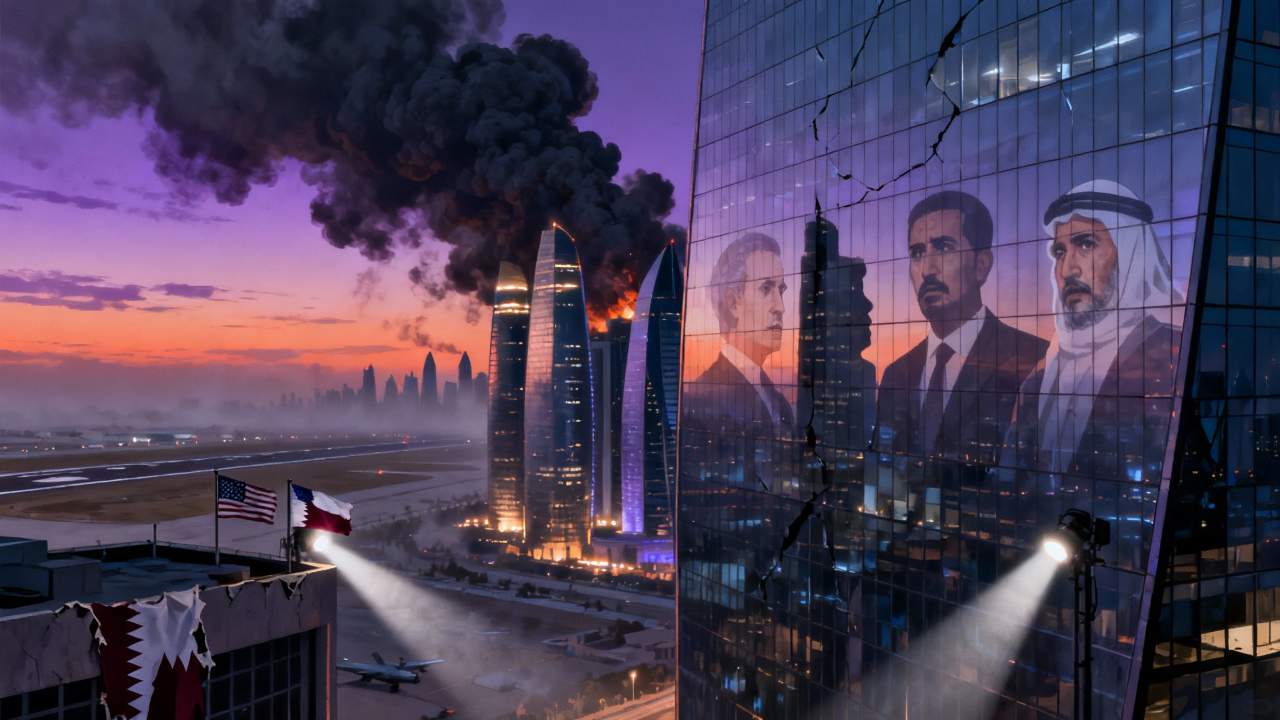A U.S. ally learns the hard way that protection isn’t guaranteed
Qatar had every reason to believe it was untouchable.

The tiny Gulf state hosts the largest American military footprint in the Middle East, the Al Udeid Air Base. Just months ago it rolled out the red carpet for Donald Trump, sealing billion‑dollar deals and even gifting him an opulent presidential aircraft.
On top of that, it carved a reputation as an indispensable mediator in the grinding Gaza war, hosting Hamas negotiators under U.S. auspices.
And then, Israeli fighter jets struck Doha.
The raid, which killed five Hamas officials and a Qatari security officer in a residential district of the capital, demolished not just a building but Qatar’s sense of immunity. Prime Minister Sheikh Mohammed bin Abdulrahman Al Thani lashed out, calling it “state terror” and warning Benjamin Netanyahu had “killed any hope” for hostages or peace talks.
A first in the Gulf, and a test for Washington
Israel has struck Syria, Iran, and Lebanon. But never before had it targeted Hamas operatives in a Gulf monarchy that doubles as a U.S. security partner. The strikes required complex logistics, including mid‑air refueling, signaling months of preparation.
The United States, caught flat‑footed, admitted it was informed too late to intervene. Trump fumed publicly, saying the decision didn’t “advance Israel or America’s goals,” but he stopped short of outright condemnation. Qatar insists the official warning only reached them after explosions were already rattling the capital.
That detail—Washington’s apparent impotence to prevent an ally from bombing another ally—has sent a shiver through Arab capitals.
Unswept promises and Gulf doubt
For years, the U.S. presence in the Gulf was treated as implicit insurance. Al Udeid Air Base, where Trump posed with American troops this spring, symbolized deterrence. Saudi Arabia, the UAE, and Qatar pledged $3 trillion in deals during Trump’s visit in May. Those were not mere business deals, but political down payments on security.
Now, that bargain feels frayed. If even Qatar—with both the American president’s personal attention and America’s most significant regional base—cannot be shielded from an Israeli strike, what does deterrence really mean? As HA Hellyer of Carnegie Endowment put it, Gulf states will now ask themselves “what sort of security architecture they need to invest in instead of relying on a partner that hasn’t been able to protect them, even from one of its own allies.”
Diplomacy in limbo
The fallout goes beyond alliances. Qatar has been central to fragile hostage negotiations and Gaza ceasefire frameworks. Those efforts are now scorched by the perception that Israel actively sabotaged talks by striking during active mediation. A senior fellow at the International Institute for Strategic Studies warned it’s a risk “not many countries in the region will be willing to stomach in return for a mediating role.”
Other regional mediators—Egypt, Oman, the UAE, Saudi Arabia—all watched closely. Israel’s message was blunt: no venue, not even one endorsed by Washington, is safe if Hamas leaders shelter there. That realization undercuts the very infrastructure of diplomacy the U.S. has relied on to outsource conflicts.
An unsteady bargain
This is not just about Qatar. It is about the unraveling of a strategic premise that has guided much of the Gulf for three decades: that alignment with Washington brings security certainty. The image of smoke rising over Doha while a U.S. president grimaced but did little may redefine what Gulf states seek in their relationships—not abandonment, but diversification. Beijing, Moscow, and even Ankara will look more attractive in the wake of Washington’s visible limits.
For now, Doha insists it will remain a mediator. But its confidence, and America’s credibility, has been bombed out of the sky along with that building in West Bay Lagoon.
